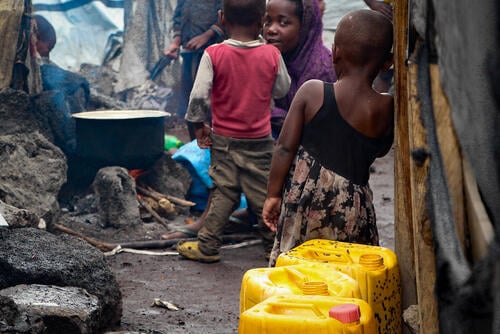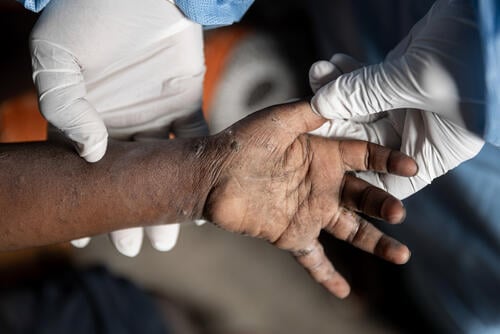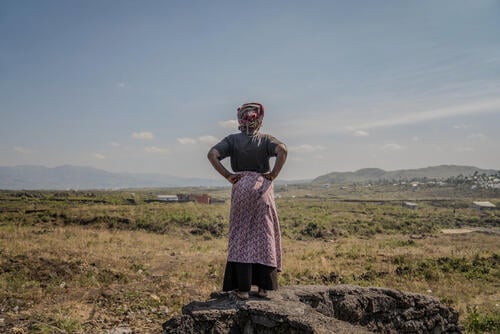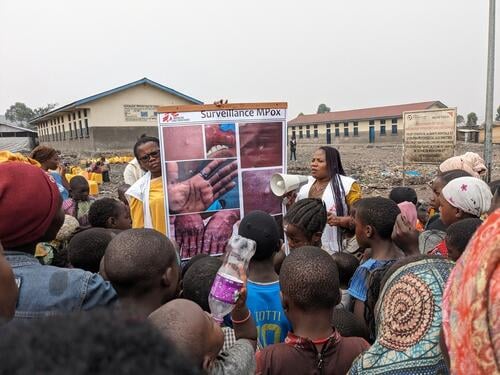Two years of violent fighting between the M23 armed group and the Congolese army (FARDC) and its allies in North Kivu province in eastern Democratic Republic of Congo (DRC) intensified in late January. Fighting has now reached the border with South Kivu province, causing new mass displacement.
More than 1.6 million
What are the direct consequences of this new outbreak of violence?
In recent weeks violent clashes in Masisi territory of North Kivu have led to a new exodus around Sake and towards Goma, the provincial capital. In just 10 days, nearly 250,000 people fled fighting. They are now sheltering with host families and in already existing, unofficial displacement sites – as well as new ones – mostly to the west of Goma.
In these sites, families crowd into makeshift shelters that offer little to no protection from the rain. Every day, people tell us it is a struggle to get enough food and clean drinking water – often going without. Hundreds of people are forced to share just one toilet and they have nowhere to wash. One woman who recently fled to Goma told us how she left with nothing but her children and the clothes on her back. She was forced to flee several times as the conflict spread. Now she lives in the camp, suffering every day, but has no option to return home as it is too unsafe.
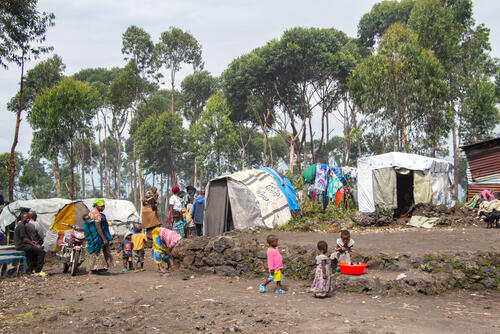
Meanwhile, the two hospitals and several health centres that we support in Masisi territory have received influxes of war-wounded patients. Over the past two months, our teams in the Ministry of Health-run hospital in Mweso have treated around 146 war-wounded people, mostly for gunshot wounds and injuries from explosions.
But the main roads to the north, west and south of Goma are inaccessible due to the insecurity and fighting, so it is extremely challenging to get supplies to these facilities. This has also severely hindered humanitarian and medical access to hundreds of thousands of people in the Masisi territory.
In parallel, fighting on the border between North and South Kivu has caused tens of thousands of people to flee mainly southwards, towards the city of Minova, which was already hosting many displaced people. People are sheltering wherever they can, in schools and in dozens of different sites.
Some of the health structures we support in the region have been overwhelmed with an increased number of patients suffering from illnesses related to the deterioration of their living conditions. But we are also seeing more cases of sexual violence and war wounded. The hospital in Minova has received over 167 injured patients since 2 February, including several women and children. In one single day, on 7 March, staff received 40 injured people and seven other people arrived dead to the facility. Patients are forced to share beds and staff work around the clock with limited resources as bullets fly very close – the frontline is just five kilometres away.
What are your biggest concerns?
At the health level, we fear a flare up of diseases again – in particular cholera, as fighting has forcing thousands to settle in overcrowded and unsanitary sites.
Combined with the lack of access to clean water, this is creating the perfect conditions for the spread of cholera. We have already been dealing with cholera in some of the camps for months, so with the new influx of people arriving it is likely to exacerbate the existing outbreak.
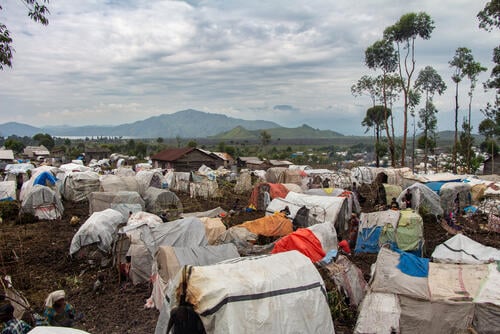
Before the resurgence of this conflict, the health situation in these two provinces was already dire, due to low vaccination coverage among children under five years of age. Coverage is the lowest in around 30 years according to the World Health Organization (WHO). Poorly functioning health structures notably due to shortages of medications and a lack of trained health professionals, also contribute.
Our teams have supported the local authorities to respond to recurring epidemics of measles and cholera, which spiked last year after peaks of mass displacement. We also provide support to help increase access to general and specialised healthcare, particularly in more remote health zones such as Masisi, Mweso or the Hauts Plateaux of the Minova health zone.
If the number of cholera cases increases, what are the risks for people?
Cholera is not a new disease in eastern DRC. It is endemic, and sporadic cases are regularly reported and treated. However, the situation is now extremely concerning due to the high number of people living in overcrowded displacement sites for the last 18 months, where the level of hygiene and sanitation, as well as safe drinking water, was clearly inadequate even before the recent arrival of hundreds of thousands of newly displaced people.
The increase in cholera cases is directly linked to the lack of hygiene and a lack of access to safe drinking water and sanitary facilities, such as clean latrines and showers. This disease can be fatal if not treated in time. Children are the most vulnerable and can die from cholera in just a few days. Depending on the severity of their illness, most patients need rapid oral or intravenous rehydration, but some people can be treated in the community by setting up oral rehydration points.
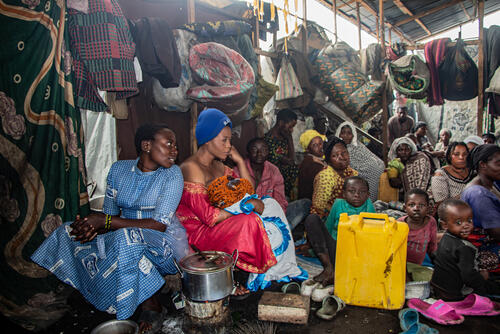
In recent months, we have treated thousands of patients for cholera in displacement sites in and near Goma. Since the beginning of the year, in two months, 75 per cent of the over 1,000 patients we treated at our health centre in the Bulengo displacement site and in the Sake health centre, had just arrived at the site and had no access to clean water, latrines or hygiene products such as soap, while living in close proximity to other people. In the space of a few days, the number of people at the site increased by 50 per cent. These factors clearly contribute to the rapid spread of this highly contagious disease.
What is MSF doing to prevent an outbreak?
In response to the complete lack of potable water, last year we built a water pumping and chlorination station on the shores of Lake Kivu that pumps and disinfects up to two million litres of potable water every day.
We also distributed hundreds of thousands of gallons of potable water per day with trucks that go to the displacement sites, as well as constructed latrines and showers. Yet this is an emergency response, and it is not enough to meet the needs, especially with the number of new arrivals. It is urgent that other humanitarian organisations and the Congolese authorities urgently respond with additional water trucking and building more emergency latrines.
While we continue to vaccinate against and treat patients for cholera – with over 20,000 patients treated in North and South Kivu in 2023 alone – if hygiene conditions do not improve, then our medical response will have little impact.
Given the scale of the needs today, and the number of people living together in precarious conditions, we fear that cholera will spread very quickly, and that our teams alone will not be able to treat all the patients who become ill. Other humanitarian organisations need to step in urgently to avoid a health catastrophe.



